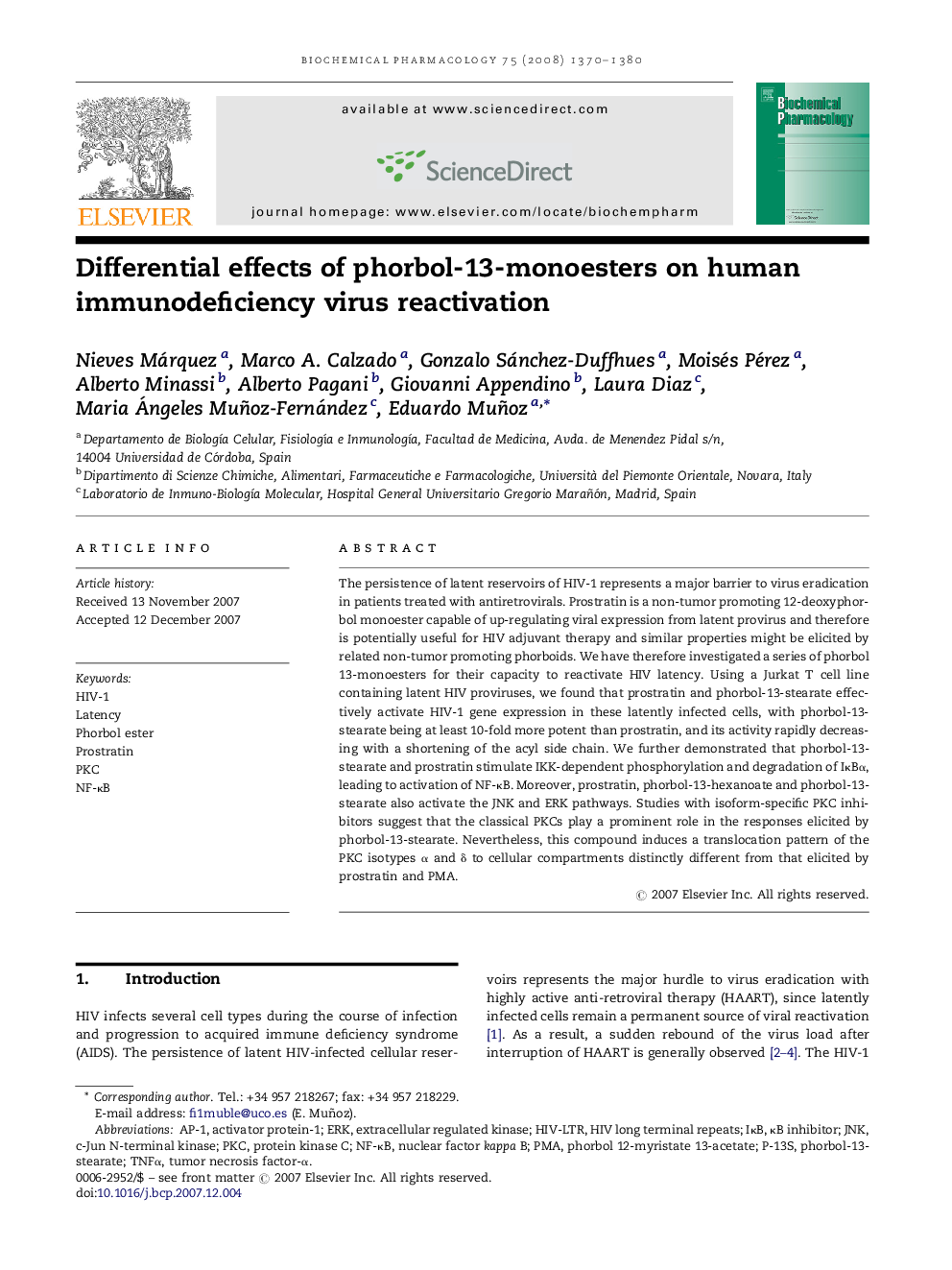| Article ID | Journal | Published Year | Pages | File Type |
|---|---|---|---|---|
| 2514514 | Biochemical Pharmacology | 2008 | 11 Pages |
The persistence of latent reservoirs of HIV-1 represents a major barrier to virus eradication in patients treated with antiretrovirals. Prostratin is a non-tumor promoting 12-deoxyphorbol monoester capable of up-regulating viral expression from latent provirus and therefore is potentially useful for HIV adjuvant therapy and similar properties might be elicited by related non-tumor promoting phorboids. We have therefore investigated a series of phorbol 13-monoesters for their capacity to reactivate HIV latency. Using a Jurkat T cell line containing latent HIV proviruses, we found that prostratin and phorbol-13-stearate effectively activate HIV-1 gene expression in these latently infected cells, with phorbol-13-stearate being at least 10-fold more potent than prostratin, and its activity rapidly decreasing with a shortening of the acyl side chain. We further demonstrated that phorbol-13-stearate and prostratin stimulate IKK-dependent phosphorylation and degradation of IκBα, leading to activation of NF-κB. Moreover, prostratin, phorbol-13-hexanoate and phorbol-13-stearate also activate the JNK and ERK pathways. Studies with isoform-specific PKC inhibitors suggest that the classical PKCs play a prominent role in the responses elicited by phorbol-13-stearate. Nevertheless, this compound induces a translocation pattern of the PKC isotypes α and δ to cellular compartments distinctly different from that elicited by prostratin and PMA.
